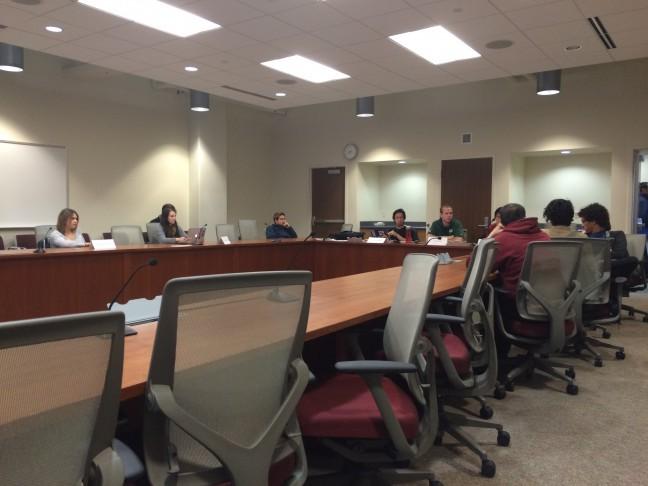The Student Services Finance Committee met to tie up some loose ends, addressing the Midyear Return Responsibility Act and Metro Transit, as the semester moves into its final month Thursday.
Midyear Return Responsibility Act
Chair Devon Maier went over his final changes to the Midyear Return Responsibility Act, pointing the committee’s attention to tweaks in the language of the act.
The Midyear Return Responsibility Act is a form for student organizations requesting a budget change for that current fiscal year. In this request form, organizations must explain the reason for their requested change and explain why the funds they are returning are no longer necessary.
“I would say it is pretty similar to what it was before, just little changes,” Maier said.
Maier said these changes included removing the term “fiscally responsible” in place for just “responsible” as the committee is avoiding using this term. He also decided the form should be due by the first Friday of March so it is not pushing too late into the semester.
The committee unanimously passed the Midyear Return Responsibility Act.
Metro Transit
SSFC’s contract with Metro Transit, which provides student bus passes at a reduced rate, came to an agreement today, Vice Chair Thuy Pham said.
The contract maintains $1.15 for three years with a two year extension, Pham said.
SSFC clarifies student orgs can only apply for GSSF eligibility once a year
Recreational Sports
During open forum, John Horn, director of Recreational Sports, expressed gratitude for SSFC’s approval of a $5 pay increase for employees and making sure wages are on par with university and housing standards. With this increase in money, Rec Sports can now set money aside in case of any sudden maintenance needs, he said.
SSFC previously approved Rec Sport’s proposed budget of $3,296,191 and recommended an increase in student segregated fees.
Rep. Jessica Franco-Morales was curious about this excess money being put aside in case of an emergency, asking Horn to explain its purpose.
Horn said it was necessary due to the shrinking of the budget for maintenance. With this extra money, Rec Sports is able to “pad” their funds in case of an unexpected mechanical failure, he said.
“We don’t expect that that money will fully come from the state anymore so we have to have funds to pay for that,” he said. “That’s what this will help with.”














